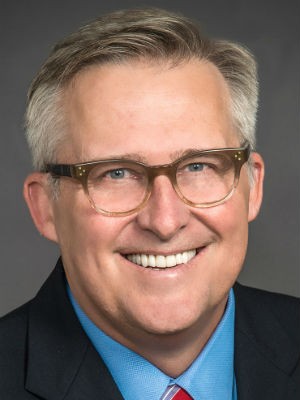 It takes courage to live as a Christian in all times, but especially in times when the pressures are daunting and maybe even crippling.
It takes courage to live as a Christian in all times, but especially in times when the pressures are daunting and maybe even crippling.
That’s a lesson we need to learn over and over from first century Jews who put their faith in Jesus and thereby lost any protection they had in the Roman occupation of Israel. They feared for their lives. Culture was against them. Government was against them.
This is something we hear from certain Christians in our country today. Many who identify as evangelicals say they have felt that the country is against them, that it has become dangerous for them to be Christians. So-called “cultural elites” in universities, the mainstream media, Hollywood and government have looked down on them for years. They resent the feelings of shame and contempt they experience in a country that is supposed to celebrate religious liberty. They feel like that applies to everyone but conservative Christians, and they aren’t going to take it anymore.
Now, I have been trying to listen more carefully to these concerns lately, as these are our sisters and brothers in Christ, no matter how much we may disagree about this or that. It seems, however, the political success conservative evangelicals are enjoying right now hasn’t healed the shame. In fact, the more things go in their favor, the more grievances they name and the more determined they are to make public policy that favors them. They have decided to fight, to stand up and be counted, to do to others what they believe has been done to them. It boils down to an attempt to restore their honor.
But here’s the thing: when you act out of the pain of unhealed shame, you are liable to lash out in equally shameful ways. This has put us in a perpetual culture war, and this by people called to be peacemakers in the way of Jesus. The world is seeing a church that names people and groups as enemies to be defeated, rather than seeing us bear witness to the love and grace of God for everybody.
“The political success conservative evangelicals are enjoying right now hasn’t healed the shame.”
There’s so much talk of fighting, of strength and boldness. But it seems always to be employed in self-interest instead of drawing upon our pain to develop empathy for the pain of others.
In other news, we are seeing people abandoning their Christian faith because the church no longer makes sense to them. Recently, a high-profile pastor, who wrote a popular book about kissing dating goodbye before marriage, has now left his marriage and his pastorate. He has seen and felt the harm this kind of Christianity has done to people and he can no longer promote it without being a hypocrite. He has even confessed publicly that he no longer claims the moniker Christian.
This isn’t an isolated phenomenon. I recently counseled an evangelical pastor who had changed his view on LGBTQ Christians. He came to the conclusion that they should have the same place in the church as every other believer. For his refusal to exclude, he was excluded himself. He was forced out of his big, happening church – a church he started, mind you. Today he says he feels more comfortable leaving the church behind altogether.
These pastors are experiencing what too many people in the pews experienced first because of them. Which may be why the fastest growing “faith” group in our country is composed of those who profess “no faith” at all.
We are in a moment in Christian history when the church should be taking account of itself by going back to Jesus and repenting of our sins. Instead, too many pastors and other Christian leaders are doubling down on doctrines that take the heart out of people, younger people in particular.
“When you act out of the pain of unhealed shame, you are liable to lash out in equally shameful ways.”
One such younger pastor in Oklahoma City whom I admire, Jonathan Martin, has said, “If we hand our sons and daughters a faith exposed as misogynistic, racist, unconcerned about creation and the poor, they aren’t wrong to leave it.” I would add that if we look at the church as a business to profit our own egos, as a fortress to protect our own prejudices or as a power base to gain privilege over others, we deserve their judgment and their absence.
We have to live and proclaim a faith full of mercy and kindness, a faith that doesn’t cower or quit in advocating for justice and reaching out in friendship to those who have been hurt by oppressive powers – including by oppressive religious powers. When we live as servants of the world instead of trying to be its masters, we will be living up to the example of our ancestors of faith.
